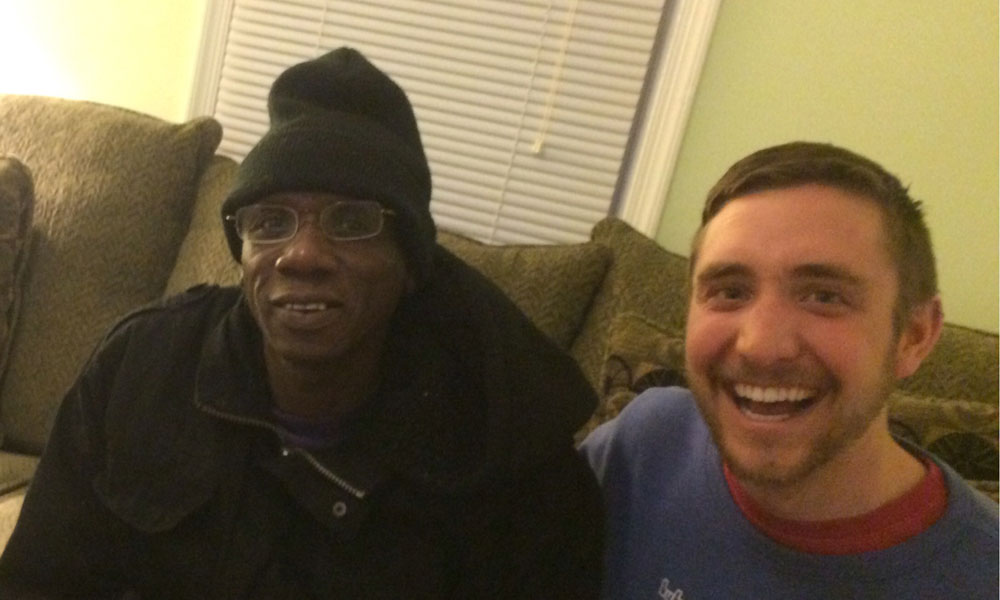Page 259 • (3,576 results in 0.032 seconds)
-
the latest on the PLU Student Emergency Fund campaign page. Gifts of ALL sizes make a difference. For instance, $50 covers a student’s Internet bill for a month. $1,000 can help a student’s family cover one month of rent. If you’re able, please give what you can today. How else is PLU supporting students during this time? In addition to emergency financial assistance, PLU is: Supporting non-financial student needs through the Student CARE Network Supporting academic student needs through distance
-
, Madigan Army Medical Center, Tacoma’s Point Defiance Zoo and Aquarium, the Washington State University Research & Extension Center, various health care facilities, physical therapy clinics, and local conservation groups. Available internships are listed through PLU’s Office of Academic Internships. The department also employs students as laboratory teaching assistants, herbarium assistants, museum assistants, animal care technicians, greenhouse technicians and stockroom/glassware workers.Why study
-
outside! During sunny days, you’ll often find students on blankets or hammocking on Red Square or down on Foss Field to study! Wellbeing Services and ResourcesWellbeing Services and Resources combines several on campus offices that contribute to a holistic student development Health Center – Offers primary healthcare services to all PLU students, including: addressing acute and chronic illness, administer immunizations, men and women’s health care services, physical examinations, and sexual health
-

health care would be the ultimate goal, but then a couple of classes focused on plant development and global agriculture grew a new passion“I have a family history of agriculture, my grandfather used to have apple orchards in Eastern Washington,” she said, explaining why her PLU biology classes resonated with her. “From that point forward, I began to pursue plant biology, as I had both personal and academic passion in the subject.” On her way to her degree, Davis completed a capstone project on plant
-

I am where I am today is because I did a lot of listening to [my] inner voice. Looking back, what was the most impactful thing you did with ASPLU? I think the most impactful thing was working on the RAD Care campaign advocating for student faculty conversations about wellness. It is not really confirmed, but our campaign probably influenced a faculty workshop. Even though I could not see the impact, I got to hear about what it seems to have led to. What are your professional aspirations? I’m
-
from what was done in the past.”— Beth Griech-Polelle, Kurt Mayer Chair of Holocaust Studies VIEW STORY LUTES MAKE IT HAPPEN From the classroom to the workforce, we’re doers who investigate, teach, create, serve, and play — with and for our neighbors down the street and those around the globe. “PLU faculty strive to engage, inspire, motivate and prepare our students for a world that truly needs their care, compassion and competence. We meet students where they are in their lives, their careers and
-
. Since all colleges and universities spend most of their revenue on personnel costs (salaries and benefits for faculty and staff members), it’s worth noting that the cost of highly trained personal services —like education, medical care, dental care, legal advice, therapy services, etc.—tends to rise at a rate faster than the increase in consumer prices for all goods and services. This tendency is called the “Cost Disease” by economists. There’s an excellent 2012 book by that title by William J
-

people in that position. … I just care about their feelings. I don’t want them to feel any less than human.” By me not using those words, I don’t put people in that position. …I just care about their feelings. I don’t want them to feel any less than human.” Hoefer learned the power of compassion—and rejection—at a young age, and in a tragic way. And it informed everything that came after. “I grew up around gay people, and I had an aunt who was gay (my best friend’s aunt, who I called my aunt
-

to AIRS, a nonprofit organization that provides housing for low-income and homeless people and families living with or at risk of HIV/AIDS or other disabilities. Technically, Markuson is a residential aide, attending to the low-income single adults with AIDS who live in the Don Miller Houses, and providing 24-hour care, support and comfort. Logistically, he cooks, cleans and makes sure residents have their medications. But it’s the personal interaction Markuson likes most. “What I really enjoy is
-
constant emergence of police brutality videos, bigoted political rhetoric and action, and an electoral race for the history books, there is a strong need for renewing the belief that this work is important and our self-care is vital for us to continue our care for the world. This weekend’s reminder of our social justice strength and resiliency, hence “no chill,” truly resonated with folks. With lots of food, a stirring panel discussion, thought-provoking conversations and even a little karaoke fun, we
Do you have any feedback for us? If so, feel free to use our Feedback Form.


